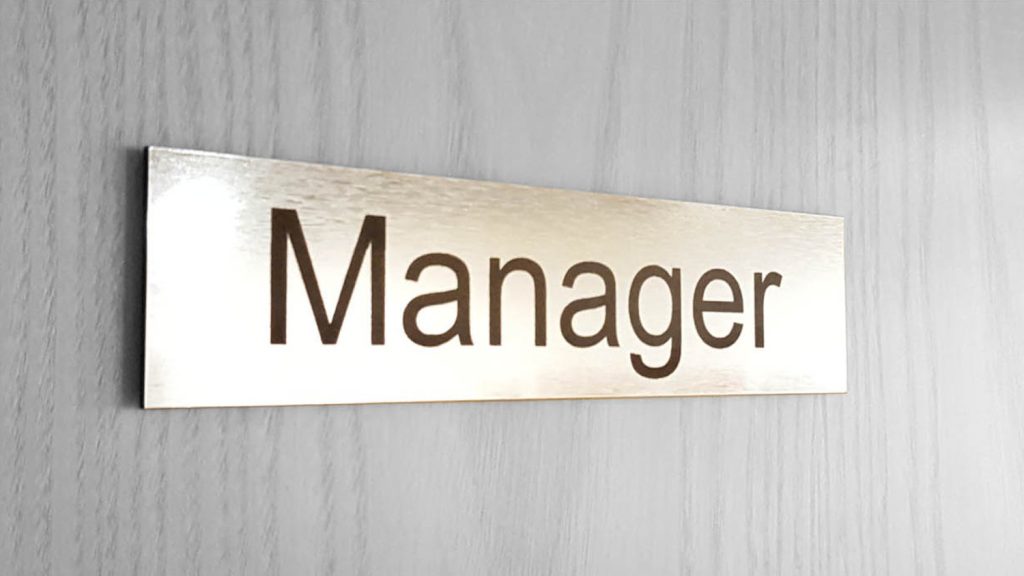To manage or not to manage? Career progression can bring with it a whole stack of worries and concerns. For 2022, our columnist SJ has made the resolution not to opt out when it comes to new opportunities
A s a student, I changed my major six times because I couldn’t decide what I wanted to be ‘when I grew up’. And most of that was decided by process of elimination. I knew exactly what I did not want to be.
I did not want to be a lawyer, a politician, a pilot, a teacher, or an actuary – so I became an engineer. It sounds weird saying it out loud, but at the time, I was constantly being quizzed: “So, what do you want to be when you graduate?”
And now that I’m ‘grown’, the question I keep running from is: “So, when do you want to become a manager?”
I hear that question and I run in the other direction. Today, if there’s anything I know that I do not want, it’s to be a manager. At least, that’s what I thought.
But in 2022, I’m embracing the philosophy of not counting myself out. After all, if someone offers you a seat on a rocket ship, you don’t stand there debating over the window or aisle seat.
Unhelpfull beliefs
Still, I’m aware of unhelpful beliefs that could hold me back from taking the opportunities that I’m offered.
For example: “I’m not that person.” Managers are supposed to have all of the answers. By contrast, I don’t even know how to properly file my taxes most of the time.
Managers are meant to be chameleons, blending into upper leadership conversations while also being able to talk shop down at the pub on Fridays. I can hardly handle the social anxiety of turning off ‘mute’ in a Zoom meeting.
Managers exude confidence and charisma from every pore. I’m still throwing up in the bathroom before and after big presentations from my nerves being fried.
Here’s another unhelpful belief: “Managers are less technical.” After all, when your job consists of managing people and projects all day, it makes sense that you might not get to make use of all the technical skills you once had, let alone keep them sharpened to a fine point.
Instead, your day-to-day consists of planning, organising and directing the resources you’re given to achieve a specific outcome.
You’re often not on the floor doing the physical labour, or in the meetings where design decisions are made. Your primary role is truly one of support – in helping those who do the work achieve overarching team or company goals.
But as the saying goes, if you don’t use it, you lose it. I’m terrified of losing all the niche lessons learned on the floor once I’m crammed into a corner office.
And here’s another unhelpful belief: “I’m not good with people.” I once had a professor who told us that every time he walked into a room, someone ran out crying. It was something about his personality. Knowing him, I found he was harsh but fair.
The way I see it, dealing with people is the most unsavoury part of being a manager. There’s a chance that some day, you’ll end up having to fire someone or lay off an entire team. If something goes wrong, you’re the person who will have to shoulder the responsibility.
Sometimes, you may have to enforce rules or company policies that go against your beliefs. Your team may get mad. Your team may not even like you. Which is fine, I suppose, because as a manager, you’ll have even fewer friends at work.
Career progression – focus on the destination
What I’ve learnt is that the main thing is to focus on the destination.
When I first joined the workforce, I understood only a conventional view of career progression: you either took a managerial route or took the technical expert route.
With more years of experience under my belt, and a lot more mentorship along the way, I now understand that these two routes can criss-cross in all kinds of ways. It’s not an either/or situation.
I now see that, by avoiding management roles, I could be closing myself off to opportunities, as others have told me. The opportunity to help others succeed and grow. The opportunity to learn more about my strengths and weaknesses. The opportunity to create a positive, healthy work environment for others.
Opening ourselves up to opportunity can be hard – especially when you’ve only looked at them in one context or from one perspective.
But I’m challenging you (and myself) not to opt out, before you opt in. Take that rocket ride to the top. See how it goes. And don’t worry. I already called dibs on the window seat.
Get in touch:
SJ is a metal additive engineer aka THEE Hot Girl of Metal Printing. She currently works as a metal additive applications engineer providing AM solutions and #3dprinting of metal parts to help create a decarbonised world. Get in touch at @inconelle on twitter






